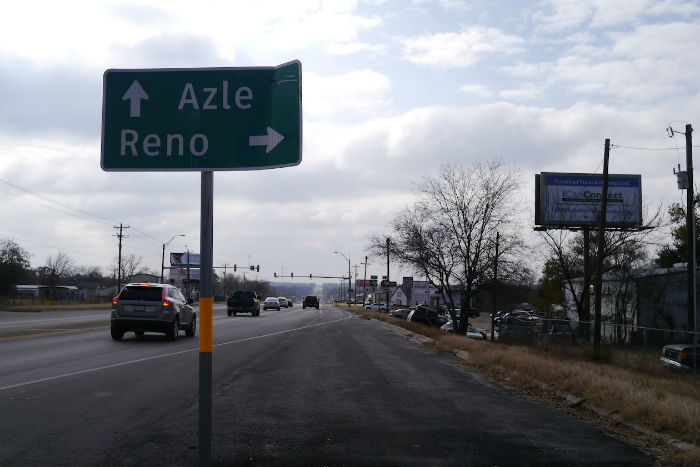
Azle residents are getting nervous and seismologists are trying to get to the bottom of what's going on. Some point to natural gas drilling that's happening in the Barnett Shale, a massive geological formation that covers about 20 North Texas counties. But a geophysicist with the National Earthquake Information Center says more testing is needed to make such a connection.
Azle isn't the kind of place with a Starbucks or a quaint coffee shop. But at the popular gas station, Centerpoint Kwik Stop, the morning coffee crowd could only talk about one thing:
"Bam. It was like something hit the side of my house -- and it wasn't nothing but the earthquake," Janice Hammond said.
She can still feel the tremors.
"Fifteen days now, we've had that little one every night, it seems like," she said.
"Real spooky"
Donna Luce is worried.
"I was sitting there watching TV, and my house just shook, and I've never felt that before, ever," she said. "Now, actually, I'm afraid of sinkholes."
Debbie Raub and her husband, Fred, described the big quake with a 3.6 magnitude as "real spooky."
"Real loud boom, and then it just started shaking the ground under our mobile home," she said. "Just rocking it. And our dogs, they go totally insane. They know it before it happens."
Each time there's a quake, their two-bedroom trailer has to be re-leveled.
"You just have to get under there, and jack it up in spots, put a level on underneath the trailer, and level it," Debbie Raub said. "It's just pulling the ground out beneath our stands."
Fred Raub, who was born in Azle, says he doesn't think the quakes are natural. He blames local natural gas drilling.
"They say it ain't what happens, but till then, we didn't have it," he said. "You gotta drill about every mile. You just start looking around at all the drills they're putting down."
Natural gas drilling to blame?
Don Blakeman, a geophysicist with the National Earthquake Information Center, says the quakes could be the result of oil and gas production. But he says more testing is needed to know that for sure.
"Obviously, if it is oil and gas production related, they might continue until that activity stops," he said. "The other possibility is that it's just a natural swarm, because we do see that sort of thing occurring sometimes in areas where we haven't had quakes before."
A natural swarm is a series of small quakes. And Blakeman says they aren't as dangerous as a quakes with bigger magnitudes - quakes at 5.0 magnitudes can produce structural damage.
"The good news is based on what typically happens, they'll die down in a while," Blakeman said. "You can't predict one way or the other with absolute certainty."
Be prepared
In the meantime, in case the ground starts to shake again, Blakeman advises individuals and families to be prepared if a bigger quake strikes North Texas.
"Find out about the kind of preparations they can do," he said. "Take things off high shelves, know where to stand if an earthquake occurs, to be safer in their house."
Scientists and other experts are reportedly teaming up with the U.S. Geological Survey to collect more data to learn more about why these quakes keep occurring in North Texas.



Before fracking, no quakes. After fracking, quakes and booms.
"There is no evidence of evidence, evidently".
It's just your everyday, run-of-the-mill credibility problem.
Blasting whole layers of strata, then pumping out the gas, leaving the ground to settle.
Why wouldn't there be rumblings, booms and quakes?
Everything about the process of explosive extraction screams "Quakes to go".
And as for the leakage/contamination problems widely reported, we have the New Horizons BP fiasco as the perfect textbook model of "Blowouts, Fractures and Leaks for dummies".